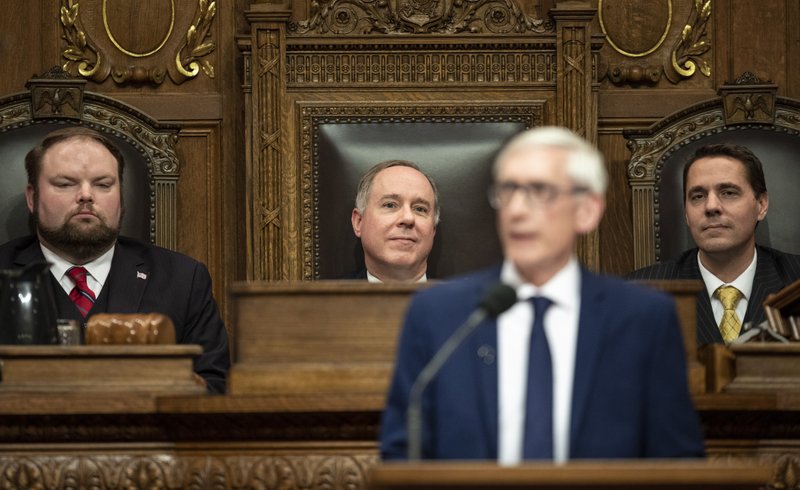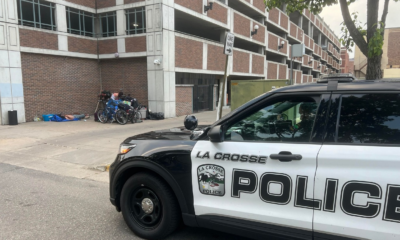Politics
Wisconsin Assembly passes state budget with some changes

MADISON, Wis. (AP) — The Republican-controlled Wisconsin Assembly passed the state budget with no Democratic support on Tuesday, sending the $81 billion two-year spending plan on to the state Senate which was scheduled to give it final approval on Wednesday.
Republicans made several last-minute changes to the plan to appease skeptical conservatives and limit the ability of Democratic Gov. Tony Evers to make changes with his broad partial-veto power. Evers was reviewing the changes but had no immediate comment on his veto plans, said his spokeswoman Melissa Baldauff.
Republicans said the budget was fiscally responsible and should be signed into law by Evers.
“We are in an era of divided government,” said Republican Rep. John Nygren, co-chairman of the budget committee. “Neither side will get 100% of what they want and yet this budget is good for all Wisconsinites.”
The Assembly voted 60-39 to pass the budget, with three Republicans joining all Democrats against. Republicans voting against it were Reps. Janel Brandtjen, Rick Gundrum and Timothy Ramthun.
Democrats, who didn’t have the votes to stop or change the budget, said that it falls short of what is needed and called it a missed opportunity. They argued for Evers’ proposals to increase health care access by expanding Medicaid to 82,000 poor people, raise the gas tax to pay for roads and increase K-12 education funding by $1.4 billion. Republicans rejected Democratic attempts to make changes to the budget.
Republicans “put their focus on cheap, political victories instead of the people of our state,” Democratic Minority Leader Gordon Hintz said.
Under the budget as passed, K-12 funding would go up $500 million, roughly a third of the $1.4 billion Evers called for. Car registration and title fees would increase to pay for roads instead of higher gas taxes. Republicans also reduced income taxes by about $450 million. That would cut income taxes on average by $75 per person in 2019 and by $136 in 2020. Evers proposed a higher income tax cut paid for by nearly ending a manufacturing tax credit program that Republicans protected.
The last-minute Republican amendment approved Tuesday would reduce a property tax increase on the typical, median-valued homeowner by $5 over the next two years. That would make the combined increase on the owner of a roughly $174,000 home $99 over two years, instead of $104, as the budget proposed by both Evers and the budget committee called for.
Republicans also made clear that only the full Legislature, and not the budget committee, could approve a miles-driven fee and toll roads. Both ideas were to be studied for possible inclusion in the next budget two years from now.
One item to be added to the budget would allow for electric-car manufacturer Tesla to be able to sell its vehicles directly to customers in Wisconsin. Republican Sen. Chris Kapenga has been pushing for the law change for two years. The Milwaukee Journal Sentinel reported that Kapenga owns a business that sells Tesla parts and salvaged electric vehicles, but Kapenga called it a hobby and said he’s made no money on the venture.
Republican Assembly Speaker Robin Vos said he wasn’t concerned about the issue and remained confident the budget would pass the Senate.
Supporters argue that allowing Tesla to open dealerships in the state would give customers more choices and help foster competition in the free market. But opponents say it could put other car manufacturers, who are prohibited from operating their own dealerships, at a disadvantage.
Hintz told reporters that Evers could improve the plan with partial vetoes, but didn’t say whether he thinks the governor should sign the plan or reject the whole thing.
Evers has the power to strike individual words from the budget, which both Republican and Democratic governors have done in the past to undo the will of the Legislature. One change Republicans made Tuesday was to replace the phrases “may not” and “shall not” with “cannot” throughout the budget, making it more difficult for Evers to reverse the intent of Republicans with a partial veto.
Vos, speaking to reporters before debate, said Republicans wanted to “veto proof” the budget as much as possible to thwart Evers from dramatically changing the spending plan.
The current budget runs through Sunday, but state government would not shut down if there is a stalemate. Instead, current spending levels would continue until the next two-year budget is enacted, however long that takes.
Associated Press writer Todd Richmond contributed to this story.
Follow Scott Bauer on Twitter at https://twitter.com/sbauerAP







